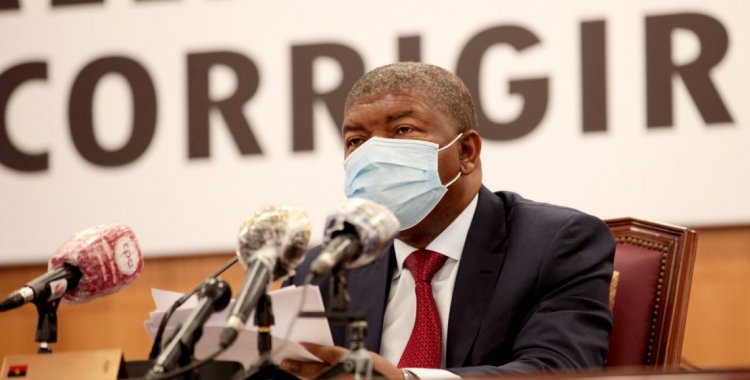The President announced this Tuesday the proposal for a punctual review of the Constitution of the Republic of Angola, 2010, which addresses issues related to a clarification of the model of institutional relationship between the President of the Republic and the National Assembly in relation to political oversight, the the right to vote abroad, the elimination of gradualism in the Constitution, the main divergence between the State and opposition parties over the first municipal elections, the affirmation of the Angolan central bank as an independent entity and the establishment of a fixed period for holding general elections .
In the more detailed presentation of the proposal already submitted to the National Assembly, the Minister of State and head of the Civil House of the President of the Republic, Adão de Almeida, said that the current Constitution does not provide for a Government of Current Management, which "appears more and more relevant".
"As a general rule, at the end of the term of office of a President of the Republic, there is concern that measures are not taken that could compromise the subsequent governance in the long, medium term," said Adão de Almeida, stressing that the proposal now enshrines this figure.
According to Adão de Almeida, from the moment the electoral campaign begins, a functioning President of the Republic "cannot take substantive decisions, when the electoral campaign begins, the Government enters into day-to-day management because a new President, a new one, is waiting. Government".
Another addition proposed in the current Constitution of the Republic is the introduction of the figure of the State of Public Calamity, which is declared by the President with the intervention of parliament, contrary to what is happening now.
"The Constitution provides for three states, the State of Siege, of War and of Emergency, and none of them is suitable for a situation like the one we are experiencing today. The one we are experiencing today is a constitutional anomaly, which is long-lasting and unpredictable." , stressed the ruler.
Adão de Almeida stressed that the anomaly situation that Angolans are experiencing, due to the covid-19, demands an approach that does not need to go to the suspension of fundamental rights, but rather to define conditions for the exercise of them.
Another novelty has to do with the mandatory proposal for the higher courts to present their annual reports, which has only happened so far with the Court of Auditors, the President of the Republic and the National Assembly, previously considered by the Superior Council of the Judiciary Judicial.
The Minister of State and head of the Civil House of the President of the Republic said that the courts' call for the inspection equation is not of a political nature.
"For example, if the parliament can call a member of the government for a parliamentary hearing, if the parliament can determine the conduct and a parliamentary inquiry in relation to an executive power structure, it can no longer call a judge to make a parliamentary hearing in relation to to the merit of his intervention, in relation to his jurisdictional function, because the judges are not politically enforceable in the Constitutional system we have ", he clarified.
The current Constitution of the Republic of Angola has 11 years of existence and the proposal for a revision includes text changes, revocation of articles and additions, with an incidence of approximately 40 articles, estimated Adão de Almeida.
Adão de Almeida highlighted the merit of the initiative by the President of the Republic on the constitutional revision, which opens a debate and allows everyone who has ideas about it to bring them to the table, so that this debate can take place in parliament.
"What we have to do at the moment is to put the proposals on the table, the debate is open, whoever has proposals, in the parliamentary framework, presents their proposals and they will surely be discussed," he said.
"In fact, I really think it is a good opportunity for certain topics in a certain sense to be taboos that can be put on the table and can be discussed. We spoke here about the excessive powers of the President of the Republic, this is already a buzzword, if much about it, but often there are no situations where there are excesses, it is an opportunity to say there is an excess here, there and there and the alternative solutions to eliminate the possible alleged excesses are these and those ", he added.







